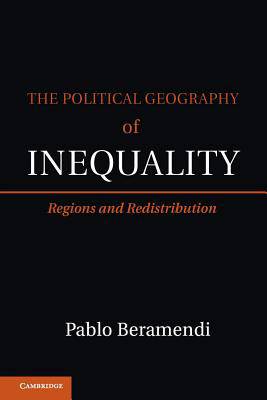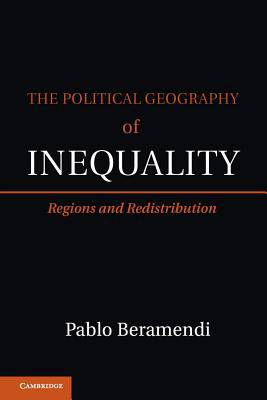
- Afhalen na 1 uur in een winkel met voorraad
- Gratis thuislevering in België vanaf € 30
- Ruim aanbod met 7 miljoen producten
- Afhalen na 1 uur in een winkel met voorraad
- Gratis thuislevering in België vanaf € 30
- Ruim aanbod met 7 miljoen producten
Zoeken
€ 60,95
+ 121 punten
Uitvoering
Omschrijving
This book is a study of the politics of redistribution and inequality in political unions. It addresses two questions: why some political systems have more centralized systems of interpersonal redistribution than others, and why some political unions make larger efforts to equalize resources among their constituent units than others. This book presents a new theory of the origin of fiscal structures in systems with several levels of government. The argument points to two major factors to account for the variation in redistribution: the interplay between economic geography and political representation on the one hand, and the scope of interregional economic externalities on the other. To test the empirical implications derived from the argument, the book relies on in-depth studies of the choice of fiscal structures in unions as diverse as the European Union, Canada, and the United States in the aftermath of the Great Depression; Germany before and after Reunification; and Spain after the transition to democracy.
Specificaties
Betrokkenen
- Auteur(s):
- Uitgeverij:
Inhoud
- Aantal bladzijden:
- 318
- Taal:
- Engels
- Reeks:
Eigenschappen
- Productcode (EAN):
- 9781107637214
- Verschijningsdatum:
- 5/06/2014
- Uitvoering:
- Paperback
- Formaat:
- Trade paperback (VS)
- Afmetingen:
- 156 mm x 234 mm
- Gewicht:
- 489 g

Alleen bij Standaard Boekhandel
+ 121 punten op je klantenkaart van Standaard Boekhandel
Beoordelingen
We publiceren alleen reviews die voldoen aan de voorwaarden voor reviews. Bekijk onze voorwaarden voor reviews.











